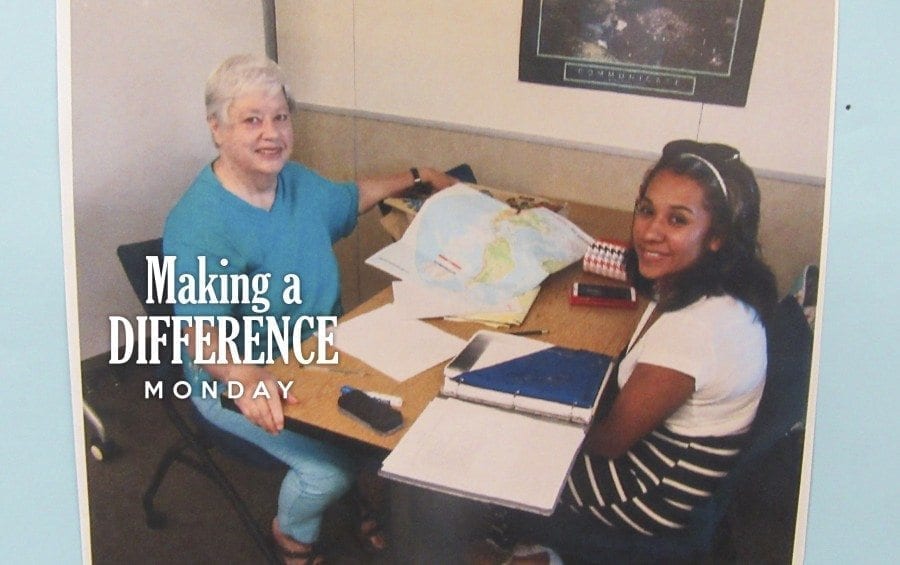
Carolyn Schultz-Rathbun
For ClarkCountyToday.com
VANCOUVER — Susan Colby hasn’t done it all, but she’s come pretty close. After getting a B.A. in anthropology and zoology in Michigan, she came out west to attend grad school at UCLA.
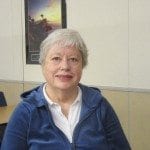
“But there was so much going on,” she says. “It was the late ‘60s.”
Colby quit grad school to work as a children’s service worker in Watts. After 13 years, though, she was ready for more school.
“I went down to the Mayan region,” she says, “and really got hooked on archaeology.”
She ended up with a Ph.D., working at archaeological digs in Belize, Guatemala, and Honduras.
“I do animal bones at the archaeological site, and human skeletal analysis in the lab,” Colby says.
Retired from UCLA now, she still works some as an independent consultant.
“But at 71,” she says, “I really don’t want to work much.”
Colby says she isn’t ready to take up golf either, though. So for the last five years, she has volunteered three hours a week as a transitional studies tutor at Clark College. She works mainly with English as a Second Language students, as well as with Adult Basic Education students.
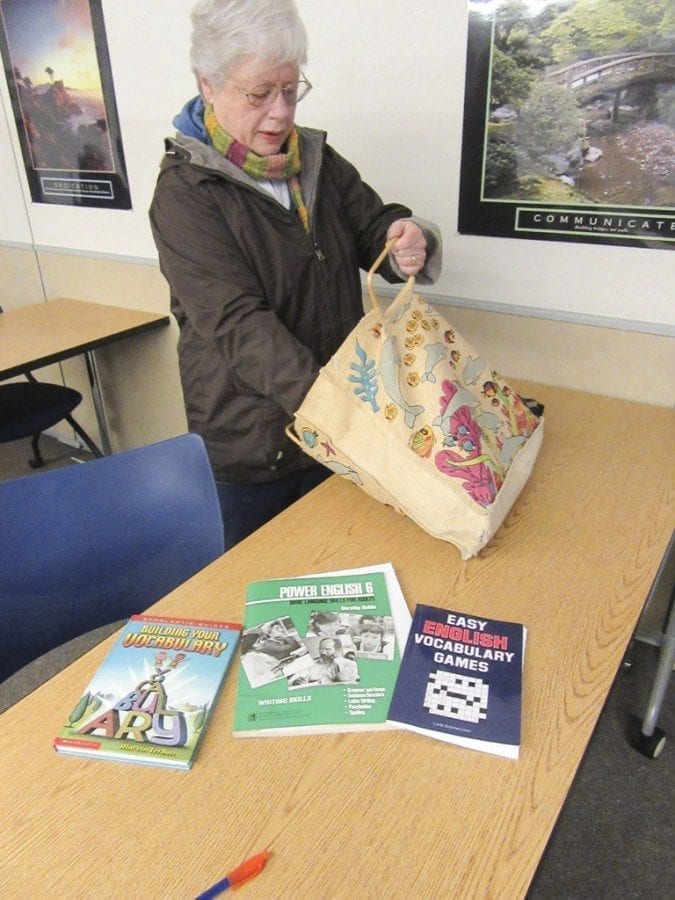
John Forney
After a career as a credit manager at xpedx in Portland, John Forney was in much the same place.
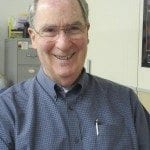
“I knew that I was not going to play golf and drink beer,” he says. “I was looking for something meaningful after I retired. I wanted something that had some meat to it. Something rewarding, something fulfilling. And I got it — in spades.”
Forney spends 12 hours a week as an in-class tutor for remedial math students.
“For the first two terms,” he says, “I prayed a little prayer to myself before every class. ‘Please don’t screw this up.’”
But that was 12 and one half years ago. Now he says there is no downside to what he does.
“You’re truly messing with people’s lives, dabbling with their futures,” says Forney. “This is a very, very important part of what they need to be successful. And it’s just fun working with people who want to do well. I think that’s what draws most tutors and teachers — that discovery moment when the student gets it. That kind of makes my whole day.”
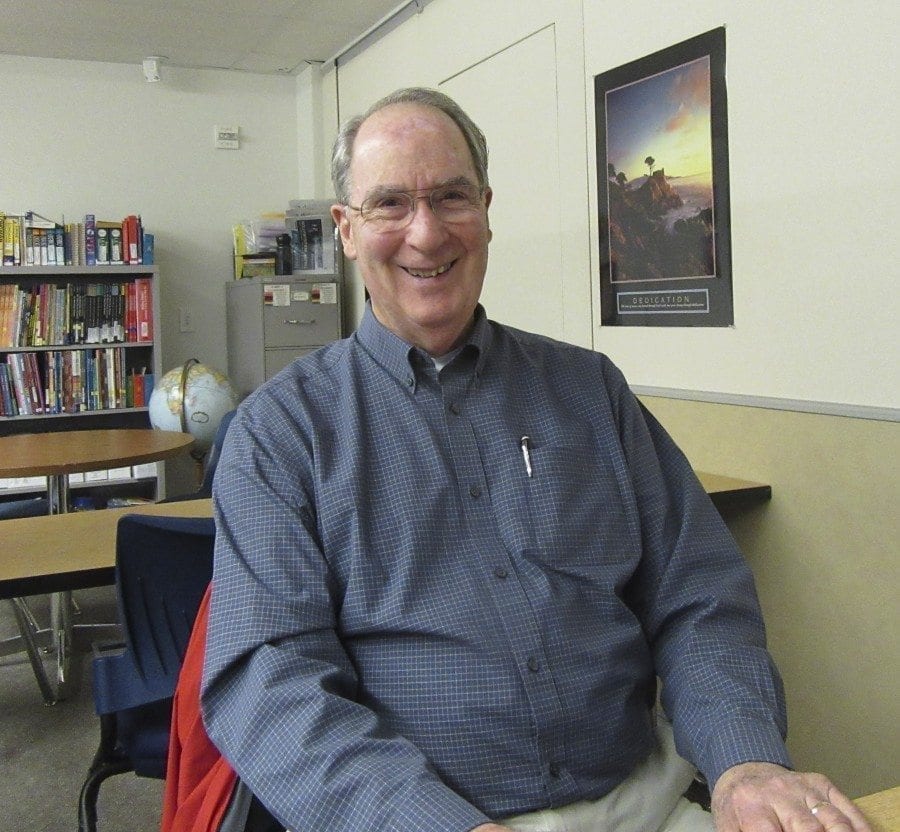
He tells of one student he remembers in particular.
“Ken Strietz. He was 71 years old,” says Forney, “and schooling was just something he’d never quite gotten around to doing. But he had decided it was time. And he went at it hammer and tongs. And when something clicked for him, he would pump his hand in the air and say ‘Hot diggity!’ I lived for those hot-diggity moments.”
Forney says students come in with horror stories about what went wrong in their past math education.
“But math,” he says, “is really just a game of logic. People think there’s only one way to do math. But there are many ways. Let’s go with what they need. My job is not to hurt their heads. My job is to help them achieve.”
Tutors just want to help others learn
Colby echoes that sentiment.
“I really feel strongly about helping people learn English,” she says. “People complain about people who can’t speak English. Well, help them learn. A lot of them are mothers, a lot of them are in school, and working. They have no transportation, no childcare. So they’re very motivated.”
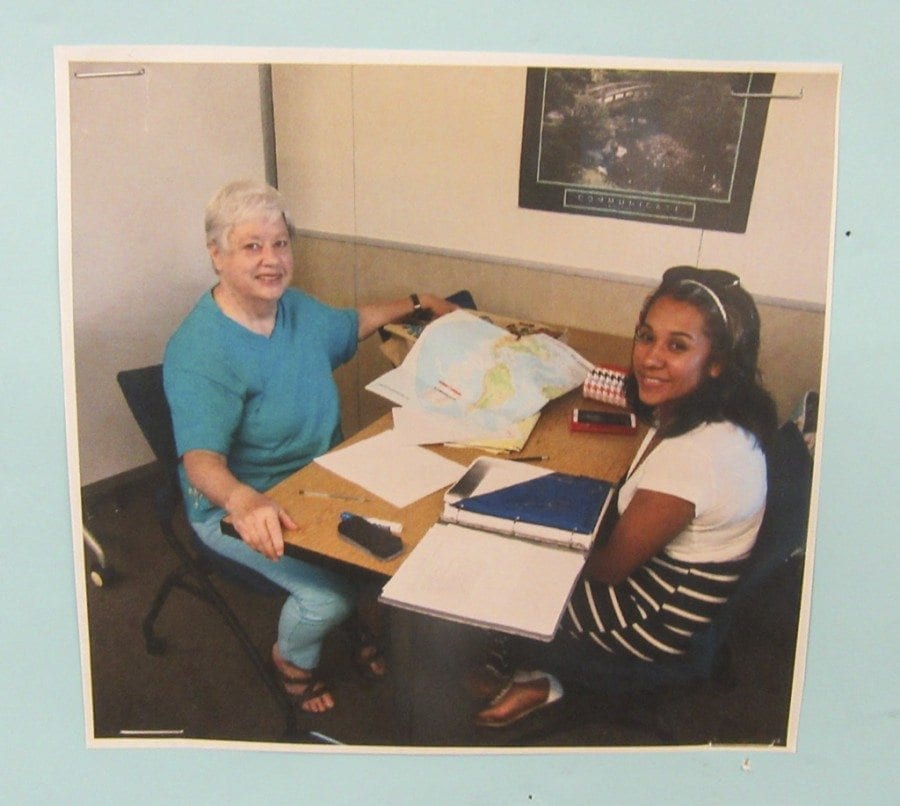
Colby enjoys what she does.
“Seeing somebody get it,” she says. There were these girls, all motivated to go to college. Jessica was particularly outgoing and determined. I just hope she’s not getting discouraged in the current political climate. She was a little fireball.”
Jessica is in regular classes at Clark now. Sometimes, though, it’s an uphill battle. Colby tells of another woman, who had attended school through the second grade in Mexico.
“She wanted to ‘get there,’” says Colby. “But it’s really hard to communicate (about English) if (they) don’t know anything about how (language) is structured. You have to go back to square one.”
So that’s what Colby did, adapting her lesson plans to the student’s needs.
“I would encourage people to volunteer,” says Colby. “And if there is a problem in society that they think needs fixing, there’s probably something they can do to fix it.”
Forney agrees.
“There are retirees,” he says, “with nothing to do. Mercy, that’s sad. You can always repot yourself.”
“I just have fun. It’s fun. Thoroughly enjoyable. Very rewarding. I live for the hot-diggity moments. They’re always there. As long as I can drive, I do want to be a part of it.”
Volunteers in the Transitional Studies Tutoring Center at Clark College must:
- Have completed approximately one year of college;
- Complete a free 7-hour tutor training;
- Meet 2-3 hours a week with a student;
- Commit to at least 10 weeks (one quarter) of tutoring;
- Record and submit monthly timesheets.
For more information on volunteering in the Transitional Studies Tutoring Center at Clark College, go to http://www.clark.edu/academics/transitional-ed/slc/tutor.php or call the Center at (360) 992-2750




